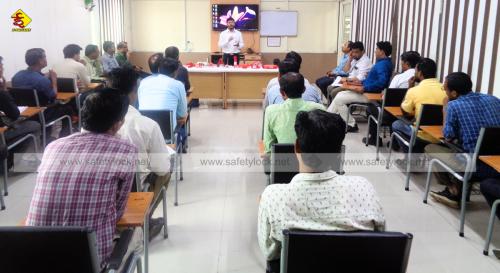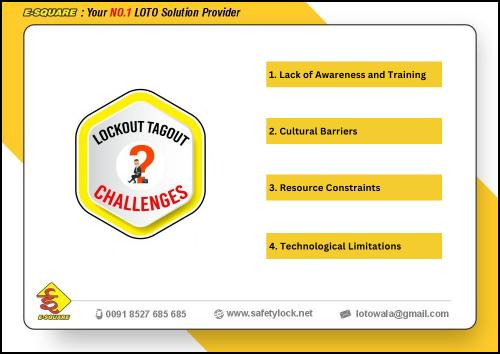Elevate Workplace Culture through Lockout Tagout

Safety is not just a term to be flounced around in front of the media and government agencies. When it comes to hazardous industries and plants, safety protocols mean the difference between life and death. One such procedure, designed to protect employees from hazardous energy releases during maintenance or servicing activities, is called Lockout Tagout (LOTO).
Traditionally, Lockout Tagout is viewed as a mere compliance procedure to meet regulatory standards and avoid penalties. While that may be true, Lockout Tagout offers a much more profound impact for those working in hazardous conditions. It serves as the cornerstone of an effective safety system that fosters a safe work environment and a safe working culture.
This post aims to explore the concept of Lockout Tagout not just as a compliance mandate but as a vital component in cultivating a safety-conscious workplace culture.
Safety Culture
Safety culture refers to the shared values, beliefs, and practices that prioritize safety within an organization. It is the collective effort of employees, employers, management, and officials to ensure a safe working environment. It is a workplace where safety is of the utmost importance and is integrated into every aspect of the plant.
Role of Lockout Tagout in Safety
Culture
Lockout Tagout involves isolating hazardous energy sources during maintenance or repair work to prevent accidental re-energization. It reflects an organization's commitment to safety, no matter how minute or significant the operation. A continuous and rigorous LOTO protocol shows the importance of safety to the workers and inculcates a sense of responsibility for their own well-being. It helps in building a strong and effective safety culture that promotes safe working methods as a top priority.
These practices not only meet compliance but also embed a safety mindset in everyday operations. When employees are aware of strict safety protocols developed for them, it creates a sense of safety and security in their minds. Knowing they can rely on their superiors to ensure their well-being promotes a loyal and productive mindset. This proactive approach to safety makes employees feel valued, hence leading to increased job satisfaction and morale.
Employee Engagement and Training
Participation: It is imperative to involve employees in the development of safety procedures and protocols. Fostering engagement and awareness ensures that employees understand the importance of these safety procedures and why they must implement them. This involvement gives them a chance to actively participate in the safety protocols even before they are implemented, increasing their knowledge and changing their mindset towards safety. Their input and feedback help the organization tailor the procedures and make them more practical and user-friendly.
Training: When it comes to LOTO training, it is more than just a formality. It is an essential step in fostering a safe work culture and reminding the workers of the importance of safety. Interactive and engaging training sessions help authorized employees not only understand the technical aspects but also give a hands-on experience of safety in their everyday lives. Training helps in developing a safety-first mindset, ensuring that the procedure is implemented correctly and successfully.
Responsibility: Empowering employees to take active roles in LOTO
can significantly enhance their sense of responsibility. When each employee is
made responsible for his/her safety through protocols, procedures, and
guidelines, it shows their commitment to their own safety. Fostering
accountability makes them more vigilant and proactive in maintaining a safe
working environment. They understand the importance and the critical nature of
their actions on their and fellow workers' lives. By involving employees in
safety audits, inspections, and even in leading training sessions,
organizations can build a workforce that is both knowledgeable and deeply
invested in upholding the highest safety standards.
Impact of LOTO on Organizational Success
Operational Efficiency: Lockout Tagout may seem like an unnecessary hassle, extending the maintenance period, but in reality, it reduces overtime and accidental interruptions. It ensures that the machinery is shut off during the servicing, avoiding accidents and unexpected start-ups. This leads to minimized delays and interruptions, boosting operational efficiency and productivity. When the work continues accident-free, the maintenance is completed on schedule and the operations are resumed without any delays. Moreover, employees can focus on the work at hand without worrying about accidents or hazards.
Reduction in Workplace Incidents: Strict safety protocols are directly associated with an accident-free environment, especially in the case of Lockout Tagout. LOTO procedures prevent the unexpected start-up of machinery which can cause severe injuries or even fatalities. When LOTO safety protocols are regularly followed, it creates a safety mindset, embedding the procedures in the minds of the workers, hence leading to zero accident workplace. Lower accident rates not only protect workers but also reduce costs in the form of medical costs, equipment damage/repair, compliance fines, and much more.
Enhanced Reputation: Safety protocols like Lockout Tagout not only help to protect workers and stay compliant but also create a positive brand image for the organization. In this socially conscious world, an organization that shows that it cares about its employees and their well-being is regarded at a much higher standard by stakeholders, potential clients, customers, and even among its employees. A well-regarded reputation for safety can lead to increased business opportunities through customer and employee loyalty. Such a reputation builds a brand as trustworthy, dependable, and reliable.
Lockout Tagout procedures are generally seen as a necessity to maintain compliance, but in reality, they offer more than just a formal necessity. LOTO procedures have the power to revolutionize workplace culture. Organizations that prioritize the well-being and safety of their employees create a sense of trust and mutual respect. This commitment to safety also promotes improved employee morale, increased productivity, and a sense of belonging among employees. In addition, effective LOTO programs can prevent most accidents and incidents leading to less downtime, reduced expenses, and better overall performance. Lockout Tagout procedures are not only part of regulations but contribute greatly to a safe organization that is thriving.
Your commitment to LOTO can drive not only
compliance but also long-term success and sustainability for your business.
Connect with us - E-Square Alliance
today and take your safety strategies to the next level.








Comments